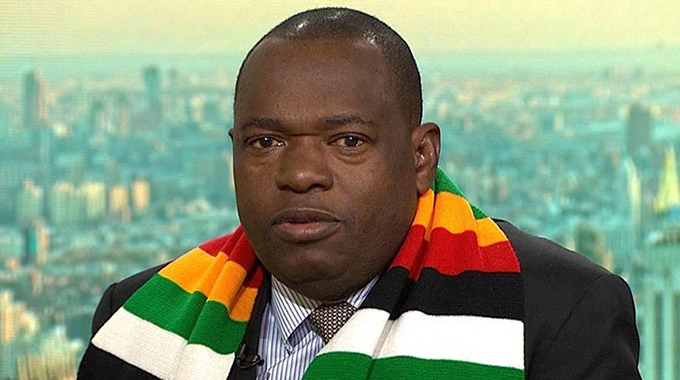Source: Housing target in sight: VP Mohadi | Herald (Top Stories)

Thupeyo Muleya
Beitbridge Bureau
Government is ready to fully implement social and economic development policies to transform the country into an upper-middle economy by 2030 as outlined in the ruling Zanu PF party’s 2018 election manifesto.
This was said by Vice President Kembo Mohadi yesterday during a tour of outstanding Government housing projects in Beitbridge, which have been stalled by fiscal-related challenges.
About US$6,5 million is needed for the outstanding Beitbridge housing project.
VP Mohadi said a lot of ground had been covered towards delivering 1,5 million medium-income housing units over the period 2018-2023.
He said the Ministry of National Housing and Social Amenities was created to ensure that feat was achieved within the set target, adding that security forces were also supposed to get decent housing within their cantonments.
“A number of housing projects had been stalled in the old dispensation and we cannot let that go unattended under the new dispensation,” said VP Mohadi.
“I am moving around with the ministers who fall in that cluster to have a feel of the needs and situation on the ground so that we make corrective measures. There is nowhere you can push for development as a leader without getting to the people on the ground.
“When we went to elections, we promised Zimbabweans a number of things which we are fulfilling as we inch towards our envisaged Vision 2030. We have started working on these in order of priority. We are action people and not concerned with talk shops.”
Under the current housing development policy, Government would immediately commit more resources to complete 16 duplex flats, 52 F14 houses and several garden flats to accommodate scores of civil servants deployed to Beitbridge.
VP Mohadi expressed concern over the dilapidated state of the Beitbridge housing project, which had received little attention in the last decade.
He noted the outstanding works on the project during his tour with Local Government and Public Works Minister July Moyo, and National Housing and Social Amenities Minister, Daniel Garwe.
“We have seen, we have conquered and this can’t go on forever,” said VP Mohadi. “We are going to bring the Minister of Finance and Economic Development on the ground so that he gets the quantum of the resources required and make funds available.
“This project should be completed by the first quarter of next year, considering that the technocrats on the ground say they need at least three months to complete inside and outside infrastructure.”
Beitbridge is the preface of the country to those entering from South Africa, hence the need to afford the housing project along the major highway to inland Zimbabwe, the urgent attention it deserved.
VP Mohadi said Zimbabweans should be proud of working together to build their economy and infrastructure from their own resources. He said the country was under attack internationally and was not getting anything from anyone.
“We are on our own and we will do things in our own way to achieve the targets of our manifesto,” said VP Mohadi. “Note that we have rebuilt the Cyclone Idai-ravaged areas in Manicaland and we are gradually upgrading national roads and we will get there.
“We have been relying on our local brains to turn things around and in no time, we will be one of the strongest economies in the region.”
Government was also concerned about the plight and dignity of civil servants and would continually attend to their welfare.
“That can only be achieved if we cater for the foot soldiers’ housing, health and remuneration needs and provide quality, affordable and decent accommodation for them,” said VP Mohadi.
The post Housing target in sight: VP Mohadi appeared first on Zimbabwe Situation.



